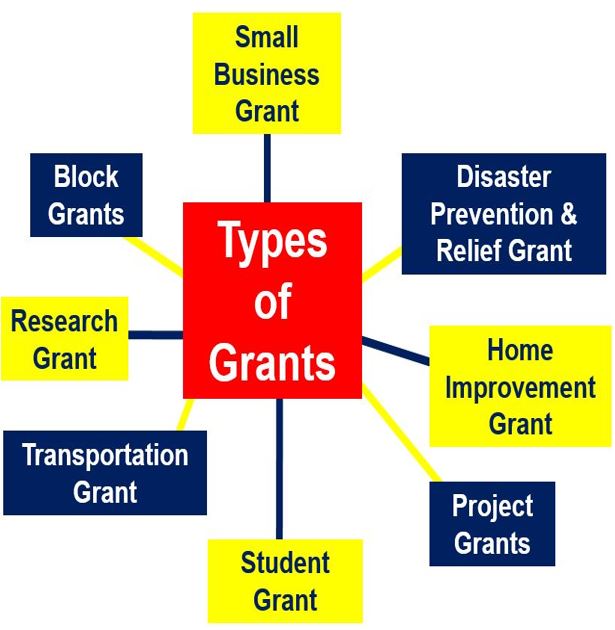A grant is a quantity of money, i.e., financial assistance, given by a government, organization, or person for a specific purpose. Unlike a loan, you do not have to pay back the money. In some cases, the receivers of study grants who abandoned their courses have to pay back the money.
The financial assistance may be for a student to study or for a team to carry out research. The government may also award grants for home insulation, community projects, or setting up businesses.
To grant
As a verb, the term may mean to award somebody something, as in “they granted John a visa.”
It may also mean to accept that something is true. The speaker will then give an opposite opinion.
For example, somebody may say “I grant you that raising a child is no easy task. However, that is no reason to hit him.” In this case the speaker first agrees, but then makes a point.
To take something for granted means to believe that something is true without even thinking about it. If you take something for granted you do not cherish it, i.e., you take it as a given.

There are hundreds of different types of grants. The financial assistance may come from central government, local authorities, companies, or charities. Some individuals also award grants.
Government grants
Many people look to their government to find out how to apply for a grant. They often do this in response to an advert.
According to the United States Government, federal grants are financial assistance awards to an organization and/or individual.
The word ‘grant’ comes under the umbrella term ‘financial assistance.’
Grants have specific purposes that the government has authorized. They do not form part of a state assistance or personal benefits program.
The government typically awards grants to non-profit organizations, universities, and researchers. It also awards grants to counties, states, cities, and law enforcement.

The European Commission awards grants in support of projects or organizations which further the EU interests. It also provides financial assistance to projects that contribute to the implementation of an EU policy or program.
Grants in the USA
People seeking a government grant or loan in the United States may find the following resources useful:
– GovLoans.gov – a useful website for people seeking a loan from the government. It has information on several types of loans for education, housing, agriculture, business, and disaster relief. It also has useful information for veterans.
– Grants.gov – aimed at organizations and states seeking grants.
– CFDA (Catalog of Federal Domestic Assistance) – this website contains a full listing of all US Federal programs to State and local government, including the District of Columbia.
Grants in the UK
According to the UK Government, grants are quantities of money that businesses or individuals receive for specific purposes.
Citizens and local businesses in the UK can apply for grants from charities, local councils, or the national government. They can also submit their applications to the European Union.
Even though you will not need to pay back a grant, there is a great deal of competition. Put simply; do not assume that your application will be successful.

Grant – pros and cons
Advantages
Grants have three main advantages:
1. The money is like a gift, i.e., you will not have to pay it back. In some cases, students who do not attend the minimum number of lessons or abandon a course might have to pay back the money.
2. You will not lose any control over your company or organization. You will not, for example, have to sell company shares and subsequently lose some ownership of your business.
3. In most cases, your credit history will not affect your submission’s chances of success.
Disadvantages
Grants have three main disadvantages:
1. You need to find one that suits your specific needs – this might not be easy.
2. Many people, companies, and organisations apply for grants, i.e., competition is fierce.
3. Grants do not usually cover the whole cost of a project. Therefore, you will need to use your own money to fund some of it.
4. Grants are not generally awarded for projects that have already begun. Therefore, if your project is already underway, mightn’t you be better off trying to find an investor or lender?
5. Applying for a grant can be a lengthy process, i.e., very time-consuming.

Person’s name – Grant
Grant can also be a person’s first name or surname. It comes from England and Scotland and has several possible origins.
Some specialists say the it was an Anglo-Norman nickname – graund, graunt, meaning ‘tall’ or ‘large’. This term was derived from the Old French grand and grant, which originated from the Latin grandis.
People probably used the name for very large individuals.
Video
This Seminole State Financial Aid video explains what a grant is. It also warns that students who drop out may have to pay back the money. The same penalty may also apply to students who do not attend a minimum number of classes.
